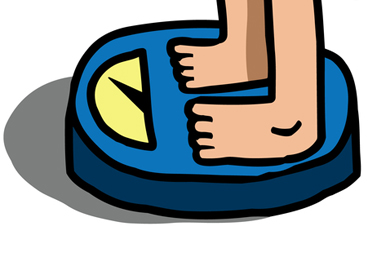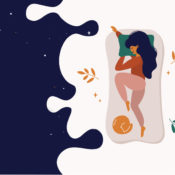
Studies show that starving oneself causes changes in the brain that can lead to the inability to see oneself objectively. It’s “distorted body image,” according to Cleveland Clinic eating disorders specialist Ellen Rome, M.D., M.P.H.
Women suffering from anorexia, for example, tend to draw their silhouettes or estimate their hip width disproportionately larger than they actually are. This is not a coy way of denying their condition; when confronted with the truth, they will firmly deny their true size. Altered perceptions of body image are predictable and painful—but they are often reversible, says Rome.
For help, turn first to a medical doctor who is well-versed in eating disorders. Contact the National Eating Disorders Association (nationaleatingdisorders.org, 800-931-2237) for local specialists.
Become a Saturday Evening Post member and enjoy unlimited access. Subscribe now



